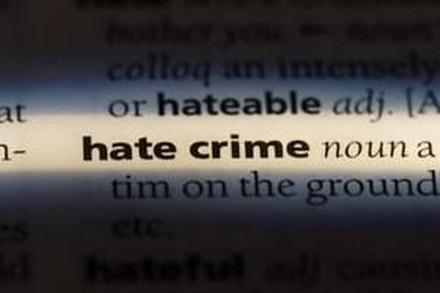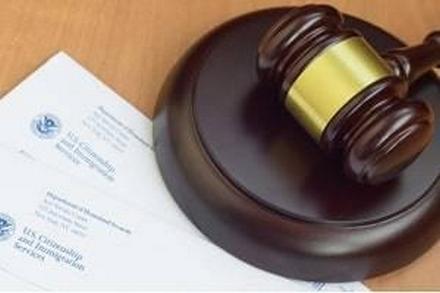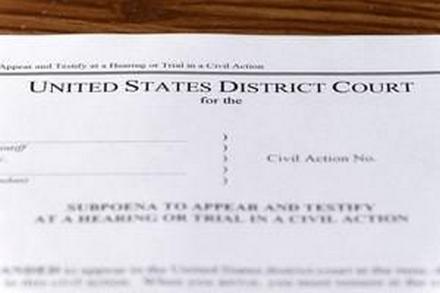TELEPHONES ANSWERED 24 HOURS A DAY
Recent Blog Posts
What is a Hate Crime and is it a Federal Offense?
 A man suspected of shooting and killing ten black individuals in a Buffalo grocery store in March was recently formally charged with multiple weapons violations and federal hate crimes. Many people understand the general concept of a hate crime, but do not fully understand what a hate crime is and when they can face charges for a hate crime. Hate crimes can be classified as both state-level offenses and federal offenses. Federal hate crime charges are punishable by severe, life-changing penalties. If you or a loved one were accused of committing a hate crime, contact a hate crime defense lawyer immediately.
A man suspected of shooting and killing ten black individuals in a Buffalo grocery store in March was recently formally charged with multiple weapons violations and federal hate crimes. Many people understand the general concept of a hate crime, but do not fully understand what a hate crime is and when they can face charges for a hate crime. Hate crimes can be classified as both state-level offenses and federal offenses. Federal hate crime charges are punishable by severe, life-changing penalties. If you or a loved one were accused of committing a hate crime, contact a hate crime defense lawyer immediately.
Hate Crimes are Crimes Motivated by Bias Against Certain Groups
The term “hate crime” can be confusing because many violent offenses are motivated by anger or hate. According to federal law, a hate crime is one that is committed against someone because of the person’s race, national origin, sex, religion, sexual orientation, gender identity, or disability. The crime could be motivated by the person’s actual race, religion, gender, or another characteristic, or the perceived characteristic.
Understanding Federal Marriage Immigration Fraud Charges
 Illegal immigration continues to be a controversial topic in the United States. Many people seek residency and citizenship in the United States and ensuring that people come to the U.S. legally is a top priority for many government agencies. Accusations of immigration fraud often lead to federal criminal charges punishable by harsh penalties. Both immigrants and U.S. citizens can find themselves facing immigration fraud charges.
Illegal immigration continues to be a controversial topic in the United States. Many people seek residency and citizenship in the United States and ensuring that people come to the U.S. legally is a top priority for many government agencies. Accusations of immigration fraud often lead to federal criminal charges punishable by harsh penalties. Both immigrants and U.S. citizens can find themselves facing immigration fraud charges.
If you or a loved one were accused of marrying someone solely for the purposes of getting them a visa, identity fraud, or another type of immigration fraud, contact a federal criminal defense attorney immediately. Do not talk to the police until your attorney is present.
Marriage Immigration Fraud
One of the most common types of immigration fraud is marriage immigration fraud. In the internet age, people across the globe from each other can meet online and fall in love without ever meeting face to face. However, some people in this situation find themselves accused of immigration fraud.
Why Federal Charges Are Much More Serious Than State Charges
 If you find yourself charged with a federal crime, you might be wondering how your charge compares to a similar charge at the state level. There is some bad news - federal charges are typically a much more serious matter than state-level charges. Federal charges often lead to harsher sentencing, and you are less likely to receive a favorable plea bargain. This is partly because federal judges and prosecutors have less discretion than prosecutors and judges at the state level. If your offense carries a lot of prison time, you will probably serve quite a bit of it should you be convicted or plead guilty. White-collar offenders can expect no special treatment in federal courts, regardless of their position in society prior to the charge. If you are facing federal charges, it is important that you immediately retain a skilled federal criminal defense attorney. Law Offices of Hal M. Garfinkel LLC, Chicago Criminal Defense Attorney has over 20 years of criminal defense experience at the federal level.
If you find yourself charged with a federal crime, you might be wondering how your charge compares to a similar charge at the state level. There is some bad news - federal charges are typically a much more serious matter than state-level charges. Federal charges often lead to harsher sentencing, and you are less likely to receive a favorable plea bargain. This is partly because federal judges and prosecutors have less discretion than prosecutors and judges at the state level. If your offense carries a lot of prison time, you will probably serve quite a bit of it should you be convicted or plead guilty. White-collar offenders can expect no special treatment in federal courts, regardless of their position in society prior to the charge. If you are facing federal charges, it is important that you immediately retain a skilled federal criminal defense attorney. Law Offices of Hal M. Garfinkel LLC, Chicago Criminal Defense Attorney has over 20 years of criminal defense experience at the federal level.
When a Doctor is Suspected of Federal Prescription Drug Fraud
 Opioid addiction is a national epidemic. It spans the entire country, and Chicago is no exception. Individuals who are caught trafficking illegally obtained prescription drugs may be subject to state or federal prosecution. Doctors who distribute narcotics outside the scope of their normal, reasonable medical practice may be subject to prosecution for federal drug crimes as well. It is a federal felony to knowingly and intentionally hand out opioid prescriptions when it is not for a legitimate medical purpose. While a large number of known “pill mills” were taken down years ago when the opioid epidemic first became a known problem, there are still doctors who attempt to discreetly continue prescribing opioids to individuals they know are likely to resell or abuse them.
Opioid addiction is a national epidemic. It spans the entire country, and Chicago is no exception. Individuals who are caught trafficking illegally obtained prescription drugs may be subject to state or federal prosecution. Doctors who distribute narcotics outside the scope of their normal, reasonable medical practice may be subject to prosecution for federal drug crimes as well. It is a federal felony to knowingly and intentionally hand out opioid prescriptions when it is not for a legitimate medical purpose. While a large number of known “pill mills” were taken down years ago when the opioid epidemic first became a known problem, there are still doctors who attempt to discreetly continue prescribing opioids to individuals they know are likely to resell or abuse them.
That said, it can be difficult for federal investigators to fully determine whether or not a prescription for narcotics is based on a patient’s genuine need for relief from legitimate pain. If you are a doctor and believe that you may be under scrutiny for prescribing narcotics, it is important that you reach out to an attorney as soon as possible.
What Are "Collateral Consequences" After a Criminal Conviction?
 When you are convicted of a federal crime, the next step is sentencing. In sentencing, the judge will decide what the appropriate legal punishment for your offense is. This may include fines, jail time, or a term of probation. You may think that once the sentence imposed by the court is over with, you will be free to move on with your life as it was before. Unfortunately, a return to normalcy is unlikely for most defendants due to what is known as “collateral consequences.” Collateral consequences are any consequences of a conviction not imposed by the court. They are very real and may change the course of your life forever. In some cases, you may experience collateral consequences even if you are not convicted. Working with an experienced criminal defense attorney may give you the best odds of avoiding or minimizing collateral consequences.
When you are convicted of a federal crime, the next step is sentencing. In sentencing, the judge will decide what the appropriate legal punishment for your offense is. This may include fines, jail time, or a term of probation. You may think that once the sentence imposed by the court is over with, you will be free to move on with your life as it was before. Unfortunately, a return to normalcy is unlikely for most defendants due to what is known as “collateral consequences.” Collateral consequences are any consequences of a conviction not imposed by the court. They are very real and may change the course of your life forever. In some cases, you may experience collateral consequences even if you are not convicted. Working with an experienced criminal defense attorney may give you the best odds of avoiding or minimizing collateral consequences.
4 Collateral Consequences of a Federal Conviction You Could Face
3 Signs That Your Business is Being Used for Money Laundering
 Money laundering is, simply put, the illegal act of making “dirty” money appear “clean.” Generally, this involves making illegally-obtained money, such as profits from selling illicit drugs, look like it came from a legitimate source. Money laundering schemes are growing increasingly sophisticated and hard to detect. With the rise of online and international trade, it is easier than ever for unscrupulous actors to filter dirty money through legitimate businesses. If you own a business, it is important that you keep an eye out for any signs that someone is using your company to launder their illicit funds. Even if you are doing everything in your power to run your business in a legal and ethical manner, all it takes is one criminal to take advantage of you and you could find yourself facing federal charges. If you suspect that your business is being used for money laundering, do not wait to hear from the FBI - call an attorney immediately and follow their advice.
Money laundering is, simply put, the illegal act of making “dirty” money appear “clean.” Generally, this involves making illegally-obtained money, such as profits from selling illicit drugs, look like it came from a legitimate source. Money laundering schemes are growing increasingly sophisticated and hard to detect. With the rise of online and international trade, it is easier than ever for unscrupulous actors to filter dirty money through legitimate businesses. If you own a business, it is important that you keep an eye out for any signs that someone is using your company to launder their illicit funds. Even if you are doing everything in your power to run your business in a legal and ethical manner, all it takes is one criminal to take advantage of you and you could find yourself facing federal charges. If you suspect that your business is being used for money laundering, do not wait to hear from the FBI - call an attorney immediately and follow their advice.
Defense Strategies for Individuals Accused of White Collar Federal Crimes
 The term “white collar crime” started gaining popularity in the 1930s. Crimes involving fraud for financial gain are often referred to as white collar crimes because these offenses are often committed by business professionals. Unlike violent offenses, the motivation behind white collar crimes like wire fraud and identity theft is typically financial in nature. Many white collar crimes are prosecuted by the federal government. A conviction for a federal white collar crime can lead to serious criminal consequences, including substantial prison time.
The term “white collar crime” started gaining popularity in the 1930s. Crimes involving fraud for financial gain are often referred to as white collar crimes because these offenses are often committed by business professionals. Unlike violent offenses, the motivation behind white collar crimes like wire fraud and identity theft is typically financial in nature. Many white collar crimes are prosecuted by the federal government. A conviction for a federal white collar crime can lead to serious criminal consequences, including substantial prison time.
If you or a loved one were charged with a federal offense involving fraud, identity theft, embezzlement, money laundering, or conspiracy, contact a federal crimes defense lawyer for help right away. Your attorney can evaluate your case and determine the best defense strategy moving forward.
How to Defend Yourself Against White Collar Criminal Offenses
Can I Face Federal Drug Trafficking Charges For Transporting Drugs Across State Lines?
 Drug laws have changed dramatically throughout the last few decades. More and more states have legalized medicinal and recreational marijuana. Some states are even legalizing psilocybin mushrooms. However, there are still multiple state and federal laws regulating drug possession, manufacture, and sale. Violating federal drug laws can lead to significant criminal penalties, including years behind bars.
Drug laws have changed dramatically throughout the last few decades. More and more states have legalized medicinal and recreational marijuana. Some states are even legalizing psilocybin mushrooms. However, there are still multiple state and federal laws regulating drug possession, manufacture, and sale. Violating federal drug laws can lead to significant criminal penalties, including years behind bars.
Moving Drugs Across State Lines Can Lead to Federal Charges
Drug crimes vary dramatically in terms of punishments and prison sentences. The amount of the substance and the type of substance determine the severity of drug possession charges. Manufacturing or cultivating drugs is usually penalized more harshly than simple possession. Transporting drugs may also be punished severely, especially if drugs are transported across state lines.
I Have Been Subpoenaed by a Grand Jury. What Should I Do?
 Federal criminal offenses are generally considered to be more severe than state-level offenses. The penalties for federal crimes are often severe, involving years or even decades in prison. If you have received a subpoena from a grand jury, you may understandably feel confused and panicked. You may be unsure of what this means and how you should respond.
Federal criminal offenses are generally considered to be more severe than state-level offenses. The penalties for federal crimes are often severe, involving years or even decades in prison. If you have received a subpoena from a grand jury, you may understandably feel confused and panicked. You may be unsure of what this means and how you should respond.
If you have received a grand jury subpoena, it means that the federal government believes that you have information related to a federal criminal case. It is very important to understand your rights and obligations in this situation. It is even more important to retain a skilled federal criminal defense lawyer who can advocate on your behalf and give you the personalized legal guidance you need.
Types of Grand Jury Subpoenas
Grand jury subpoenas are legal tools used by the government to gather evidence during the investigation or prosecution of a crime.
Be Wary of Work-From-Home Scams that Can Lead to Federal Charges

Working from home and online jobs are more popular than ever. Unfortunately, many scammers are taking advantage of this situation by offering seemingly legitimate jobs that are actually money laundering schemes. The FBI and BBB have warned of these scams and explained to job-seekers that getting caught up in these scams can even lead to federal charges.
Moving Money or Packages for a Third Party May Lead to Money Laundering Changes
Many people are looking for jobs they can complete from the comfort of their own home or car. Unfortunately, not all job listings are from legitimate employers. One common scam involves inspecting and delivering packages. The individual is asked to receive packages and then re-label the packages and ship them elsewhere. What the package inspector may not know is that the packages were purchased using stolen credit card information and they are simply a middleman in an illegal scheme. Anyone participating in a scam like this could face criminal charges for money laundering or conspiracy.




